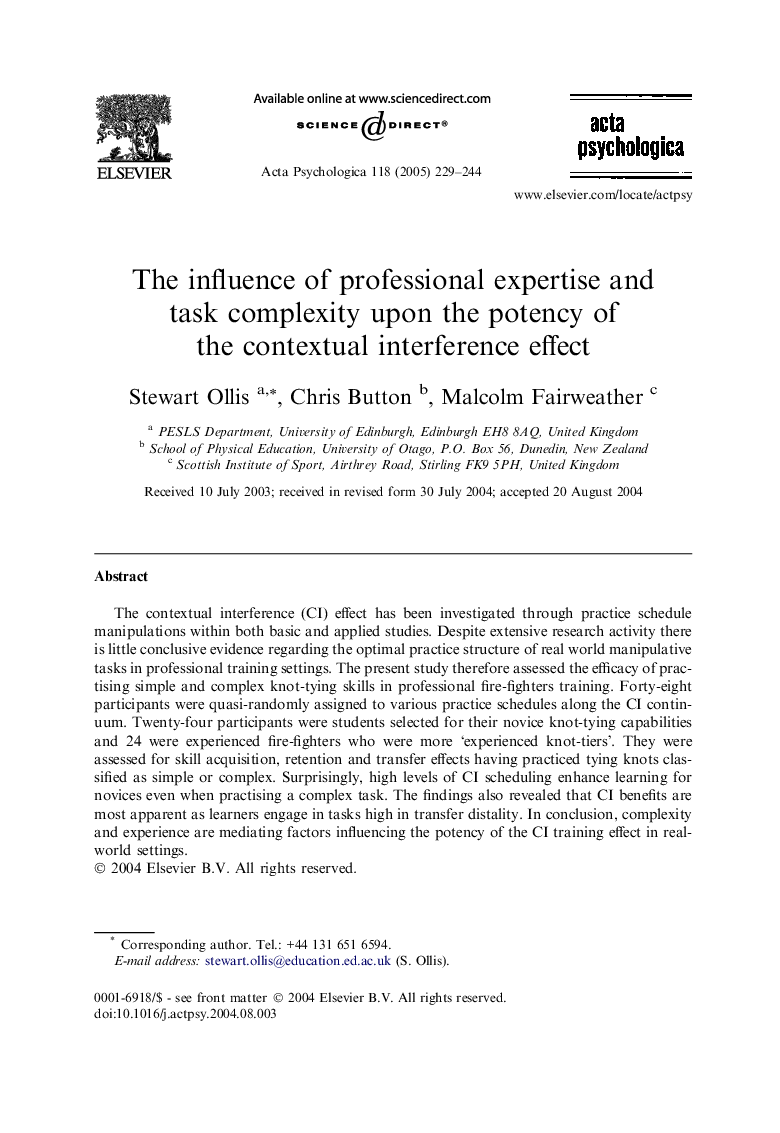| Article ID | Journal | Published Year | Pages | File Type |
|---|---|---|---|---|
| 10453913 | Acta Psychologica | 2005 | 16 Pages |
Abstract
The contextual interference (CI) effect has been investigated through practice schedule manipulations within both basic and applied studies. Despite extensive research activity there is little conclusive evidence regarding the optimal practice structure of real world manipulative tasks in professional training settings. The present study therefore assessed the efficacy of practising simple and complex knot-tying skills in professional fire-fighters training. Forty-eight participants were quasi-randomly assigned to various practice schedules along the CI continuum. Twenty-four participants were students selected for their novice knot-tying capabilities and 24 were experienced fire-fighters who were more 'experienced knot-tiers'. They were assessed for skill acquisition, retention and transfer effects having practiced tying knots classified as simple or complex. Surprisingly, high levels of CI scheduling enhance learning for novices even when practising a complex task. The findings also revealed that CI benefits are most apparent as learners engage in tasks high in transfer distality. In conclusion, complexity and experience are mediating factors influencing the potency of the CI training effect in real-world settings.
Related Topics
Life Sciences
Neuroscience
Cognitive Neuroscience
Authors
Stewart Ollis, Chris Button, Malcolm Fairweather,
